The Difference Between Gluten-Free vs Gluten-Reduced Beer
“If someone with a peanut allergy walked into a restaurant and told the chef she/he couldn’t have peanut oil, you wouldn’t hear the chef tell her/him that it’s peanut-reduced and it’s totally safe because it’s only a small percentage. The same concept applies to gluten-free. Either beers are, or aren’t gluten-free. There is no in-between”
Beer comes in and out of trends and fads. Hazy IPA’s, Pastry Stouts, barrel-aged everything, Kettle Sours, you name it and it has either stayed or passed. But regardless of trends and fads, people are becoming more aware of their health, which can include gluten, a mixture of a variety of proteins, sometimes up to over 100 or more in one gluten-containing grain. The emergence of gluten-free and gluten-reduced products may appear to be two similar additions to the beer market, specifically for those with gluten-intolerances, gluten allergies and even those with Celiac disease and Ulcerative Colitis (UC). But for some who may be ill-informed, there is still a potentially detrimental health risk of gluten-reduced beers.

To put into clarification before continuing, Gluten-Free (GF) and Gluten-Reduced (GR) are not the same. Brian Kulbacki from Departed Soles Brewing in New Jersey tells us, “They don’t even belong in the same conversation, let alone draft line or store shelf, and to confuse the two is jeopardizing the health of folks that need gluten-free products. Gluten-reduced beer is not gluten-free, plain and simple.”
Michelle Pagano, a Celiac herself, who runs TheOutcask.com states, “GF beers are brewed using naturally gluten-free malted grains such as corn, quinoa, buckwheat, and sorghum, to name a few. GR beers contain barley, wheat, spelt, rye, and other gluten-containing ingredients. GR beers are brewed with an enzyme that breaks the gluten down to under 20 parts per million [or proprietary filtration methods to achieve the same results]. Research on whether or not gluten-reduced beers are safe to consume for Celiacs and gluten-intolerant patients remain inconclusive.” She then continued on to give a startling, but easily understood analogy, “If someone with peanut allergy walked into a restaurant and told the chef she/he couldn’t have peanut oil, you wouldn’t hear the chef tell her/him that it’s peanut-reduced and it’s totally safe because it’s only a small percentage. The same concept applies to gluten-free. Either beers are, or aren’t gluten-free. There is no in-between”
The hardest part in all of this, is based on FDA standards, any product containing under 20PPM of gluten may be called gluten-free[2]. The TTB[3] and Brewer’s Association[4] both make the distinction between labeling beer GF versus GR clear, but this can still come with confusion towards retailers, wholesalers and consumers. If you were to find a section of ‘Gluten-Free’ beer at your local alcohol retailer, you will see a mix of both GF and GR beer. Because of this, many ill-informed people who need to avoid gluten for health reasons, will not see the difference, and will consume GR products. In some cases, these same consumers will still have symptoms.
To put further clarification, GR beers may still seem to some a viable alternative to those with only minor gluten intolerance, excluding those with gluten allergies or more severe conditions such as Celiac disease or Ulcerative Colitis. But this is a difficult balance as well, as gluten intolerance can lead to more severe conditions if the consumption of gluten products is not reduced or stopped. For this reason, GR beers tiptoe a dangerous line for those who consume them due to any health-based reason. For those considering GR as a healthy alternative to traditional brews, this is a myth, as GR beers will still contain the same calories and alcohol and other, what may be considered, ‘negative’ health effects. These beers will simply have a low traceable count of gluten- only one component of a complex food product.
Professor of Food and Agricultural Proteomics, Michelle Colgrave says, “Beers that use traditional gluten-containing grains are often treated with enzymes that aim to degrade or remove gluten, or are processed via filtration or similar techniques. The beer manufacturers then test these with the only available technology, which is an antibody-based technique. Unfortunately, the current tests are not able to detect all forms of gluten, especially when it has been hydrolyzed (cut up) as occurs naturally during brewing and further results from the use of these enzymes. The gluten proteins may also be modified during brewing or by treatment. As such these gluten fragments become invisible to the test, but not to the body. Some people might tolerate these, but others will not…Our research has used an alternative technology that directly measures the presence of gluten, including hydrolyzed gluten and we detect significant levels of gluten in many GR beers.”
Karen Hertz, founder of Golden, CO’s Holidaily Brewing echoes that sentiment. “In our opinion there’s gluten-free beer and there’s beer. When brewers first started using enzymes in their beer to produce gluten-reduced beer, they thought they were doing gluten-free consumers a service and didn’t realize the risks. Since then, research from the Celiac Disease Foundation has come forth showing that gluten-reduced beer causes immune responses in people with Celiac Disease and can make sensitive consumers sick.”

As Brian Thiel of Ghostfish says, “I call gluten-reduced beer, ‘low-integrity beer’ because people will get sick…If you are a beer drinker, and you are freshly diagnosed with Celiac Disease for example, and if you’re not educated, you’ll pick up that beer, and still get sick.” There are enzymes on the market to create ‘gluten-reduced’ beers, but as one website says of their product, it “significantly reduces the gluten content in beers made with barley and wheat. [Product Name] treated beer made from barley or wheat will typically test below 20 ppm of gluten, which is the international threshold for brewing considered gluten-free…While this test allows brewers to know the gluten level of their beers, the values may not be used on packaging labels until the FDA completes its own validation.” [5, 6]
The only way to be sure of a 100% gluten-free beer , and not one that falls under the nationally recognized >20PPM of gluten, is to consume ones made by gluten-free breweries, or those who are implementing strict procedures to ensure there is no cross-contamination between the beers containing gluten and those that are not. Breweries such as GhostFish run a strict non-gluten brewing facility, and restaurant, to further ensure no outside food- possibly containing gluten, are brought into the brewery. Thiel states, “We are a traditional brewery using non-traditional grains. We use certified malts and GF yeast.” He went on to say that Ghostfish had not originally been intended to be a Gluten-free brewery, but became one out of design due to a lack of “quality gluten-free beers at the time.”
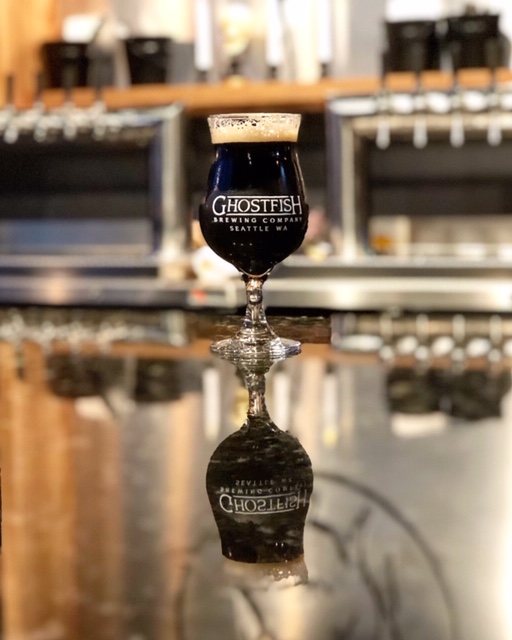
Thiel’s wife was diagnosed with Celiac Disease years before the brewery opened and frequently complained of still suffering symptoms, after drinking gluten-reduced beers, as well as supposed ‘gluten-free’ beer from Europe (which has different standards than the US). “We’re not trying to sway the world into going gluten-free,” he says, “we try to let the beer speak for itself…[we] push hard on making the best quality beer. The highest quality beer.” Ghostfish has been successful in striving towards quality, with a 2015 GABF Gold Medal-winning Watchstander Stout, and over 350 individual beers in a variety of styles including Helles Lager, Hazy IPA, tart Saison, and Belgian styles like Dubbel and Quad.
Breweries such as Departed Soles Brewing and Revelation Brewing are more ambitious, making both standard and gluten-free beers. Both breweries are strict about all procedures, cleaning and serving so as not to cross-contaminate. Kulbacki says, “To prevent cross-contamination and grain dust in the air that could introduce gluten to a GF product, all of our grain, GF or not, is milled off-site by the supplier. Our GF Grain is milled in dedicated GF Facilities on dedicated GF Equipment. [For fermentation] Always a fresh pitch of certified GF yeast, no sharing of yeast cone to cone or reuse. And dedicated packaging lines and draft lines
“Beyond having dedicated fermenters and a dedicated canning line, as well as draft lines and growler fillers, which in my opinion should be a bare-minimum that anyone does that dabbles in this realm, we employ a proprietary cleaning chemical blend …We then utilize a proprietary cleaning method after the cleaning chemicals are washed out to further scrub the tanks clean and ensure there are no residual proteins, starches, sugars, or essentially anything else left to potentially contaminate the beer. Any gluten-free ingredients are one use to avoid contaminating and are all stored separately from gluten-containing ingredients. grain handling line for GF grains.”
To further the message about the reasons behind these procedures, Pagano says, “I strongly suggest breweries do their research on what cross-contamination may exist in their brewhouse (grain mill, CIPing tanks, cleaning the tap lines, etc.). You are not doing Celiacs a favor by offering a semi-gluten-free / gluten-reduced beer, or even a hard seltzer made in the same tanks that you make your beers. You are actually making Celiacs sicker. A Gluten-Free Beer Coalition is in the process of being formed, so I recommend reaching out to them to discuss protocol if a brewery is truly serious about releasing gluten-free beers.” For more information about the coalition, contact Kaitlyn at [email protected].
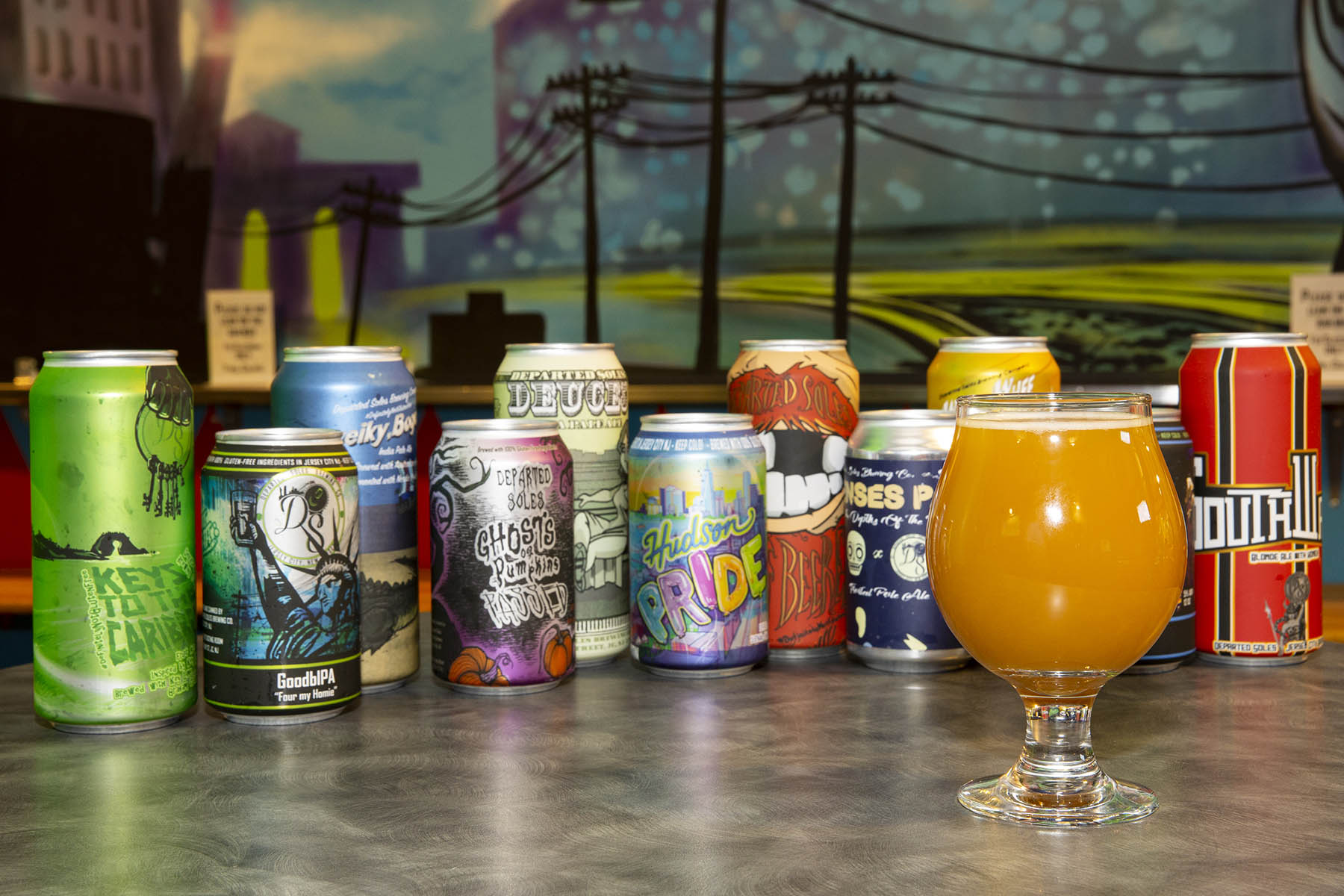
Kulbacki adds, “This is peoples’ health and lives that are at stake when making gluten-free beer. I know that a lot of people, including some brewers, still laugh at the “gluten-free segment,” and even the diagnosis, but the fact of the matter is that it is a disease and people do get very sick from consuming gluten. This shouldn’t be a product you do for fun, or to attract a niche, if you aren’t willing to craft it to the same standard as your other beer, and install the necessary processes, procedures, equipment, and techniques to ensure that it is done right. Not only can you hurt the industry by not doing it whole-heartedly and properly, but you can also hurt people, and that’s nothing you should mess around with to try and make a buck.”
According to Celiac.org, “Celiac disease patients who have adhered to the gluten-free diet for five or more years do not have an increased risk of developing cancers of the mouth, pharynx, esophagus, and lymphoma when compared with the general population. The risk is increased in those on a reduced gluten or normal diet. This population has an excess of cancers of the mouth, pharynx and esophagus.” This exact situation of oral-based cancer occurred to Pagano herself, a non-smoker, fairly healthy person. She considered herself lucky, only needing surgery, but recounts most are not so lucky and require chemo and other treatments. The risks can be very real when it comes to gluten-reduced versus true gluten-free if proper research is not done.
When it comes to ingredients, truly GF beers are not cheap to make. Theil says, “the cost can be five to ten times more expensive than other grains, “ and according to Patrick Staggs of Revelation, “Pain in the butt and expensive as hell! Like 4x the price of regular brews. But doing it the hard way and the right way pays off! We took a Gold in the US open for our Truth in the Juice GF IPA and we’re pumped! It makes a difference.” There are a limited number of suppliers of malted GF grains, but as more breweries are opening up and using these grains, the maltsters are coming out with different kinds of malts. This only help to create a wider variety of GF beers to be made!
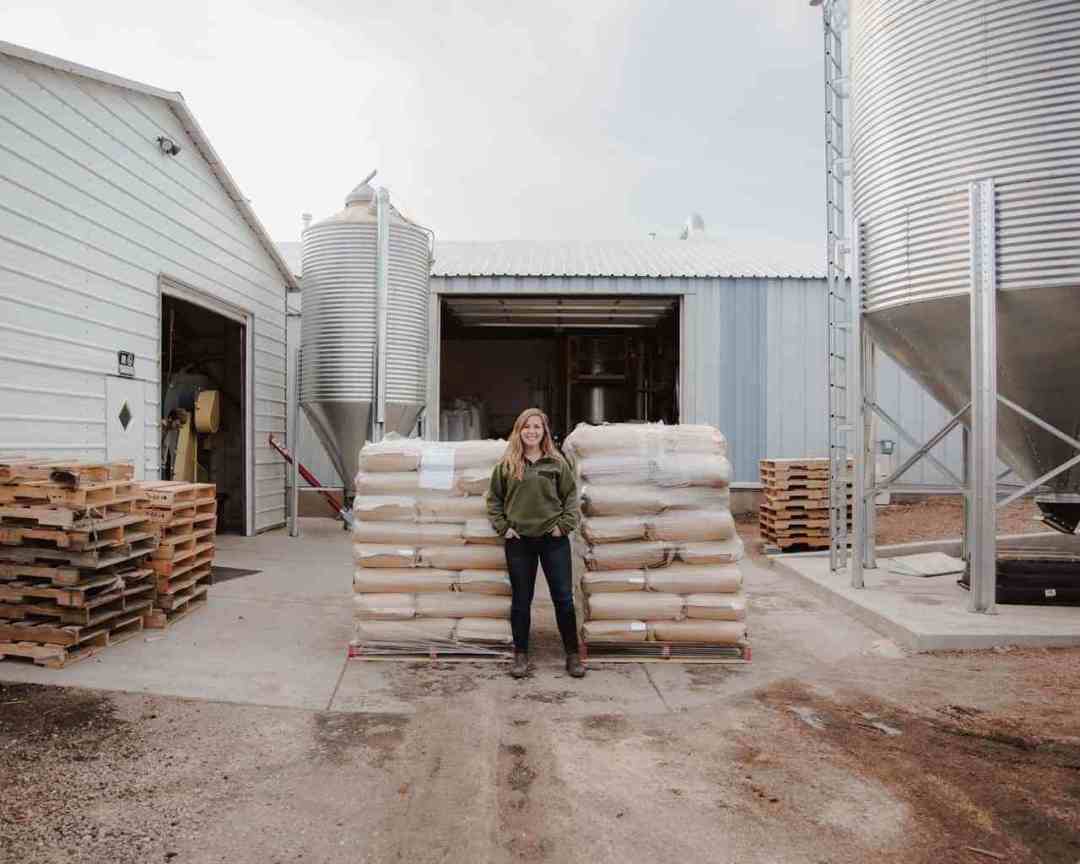
Malthouses such as Grouse Malting in Colorado, where Holidaily Brewing sources their millet and buckwheat, are working to try and create a wider space in the gluten-free grains segment. By allowing for brewers to purchase 100% gluten-free grains as well as the options for pre-milled grains. Although ‘traditional’ breweries might not think kindly to pre-milled grains, it does allow for breweries such as Departed Soles to need only one mill instead of two, and the complications that come from mill dust infecting their final product with gluten-containing grain fragments. Against popular beliefs, Grouse does make darker roasted malts available such as their Chocolate Roasted Millet Malt and include a variety of other unique but flavorful malts including Flaked Quinoa and Organic Malted Blue Corn. Regardless of the malt house, the cost of gluten-free grains will always be more than barley. As barley is used in multiple industries and mass-produced for beer production, it has become a cheaper and more readily available product. Grains such as millet, are grown less widely. The #1 market for millet in the US, for example, is bird food, even though it has been used for centuries as a traditional brewing ingredient in other countries.
The importance of spreading awareness to people, with or without gluten allergies, of gluten-free beer is not only for health reasons, but to break the stigmas that have been pushed upon them. Pagano states, “People think that only Celiacs can drink gluten-free when in reality, these aren’t just ‘gluten-free beers.’ We are not limited to mediocre beers. These are delicious award-winning beers, which happen to also be gluten-free. Just as NEIPAs and Sours were once new, strange, varying in grain bill and flavor profile, beers made gluten-free also fall in this pattern. We were not equipped to understand NEIPA and Sours initially, but the more breweries released these beers, eventually, our palates caught up and the industry made room for these two styles. Gluten-free beers are made with ancient grains like corn, millet, buckwheat, etc. and once again, our palates cannot distinguish what they’re supposed to taste like because this is something new to us. As we begin to understand these unique, ancient grains, we will continue to evolve as craft beer enthusiasts!”
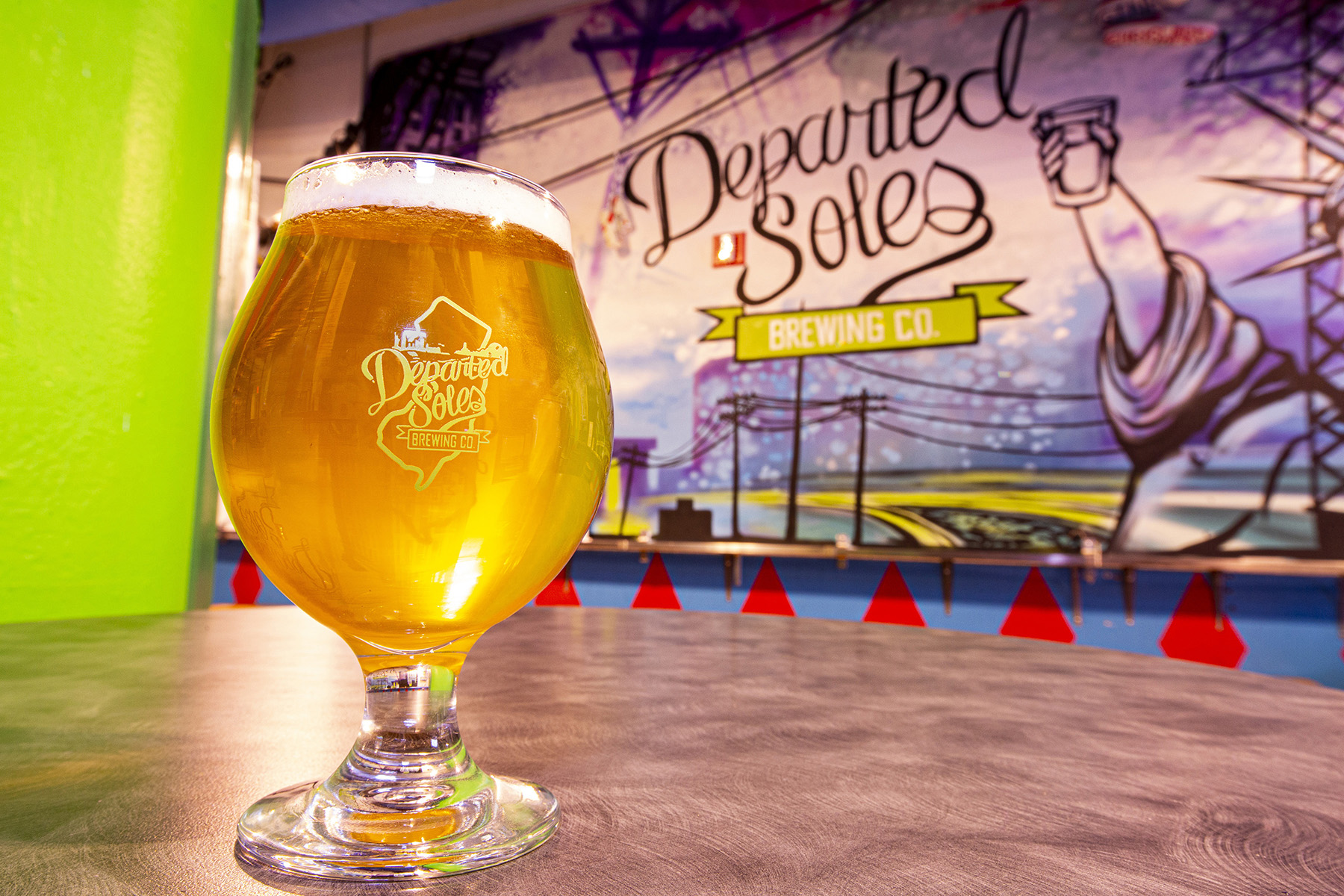
In order to spread more education and awareness to this growing sector of the beer market, there was recently the first-ever gluten-free brewery CBC of which Pagano was a speaker. She writes about it quoting research data showing that the gluten-free beer market is expected to climb 14% by 2022, Some of the information covered was possibly adding a new certified gluten-free seal to dedicated gluten-free breweries, similar to ones seen on food products. They also spoke about ongoing messaging to educate all consumers, not just gluten-intolerants, on gluten-free beers. [7] With progress such as this, gluten-free beer will hopefully be able to overcome the stigmas associated with “gluten-free” and people will be able to appreciate and respect it as the same products as other breweries, only using specific ingredients so that everyone can enjoy it.
In discussions with people in public, Theil stated many would comment about their friends who are Celiac or live gluten-free lifestyles for one reason or another, tell him them that the beer is very good and high quality. When asked if they had ever tried themselves, most would comment about not being gluten-free. Theil states, “We don’t make gluten-free beer just for those who can’t have gluten, we make beers for everyone.” The stigmas that have been thrust upon gluten-free beer are by far misapplied. There are quality products on the market to be enjoyed by all. The problem lies with labeling and lack of proper education- ensuring people will not pick up these products, unintentionally making themselves sick.
There are sanctions in place through the FDA to ensure proper labeling is taking place, but this should be a call for proper education for the health and safety of those who may be ill-informed, or underestimate the potential risk they may be putting upon their bodies. This is not a statement to say all gluten-reduced beers are an immoral product or one made out of fad-following greed. This is simply a call for those who produce them to ensure they are informing their consumers of the looming potential risk they may be taking, and for consumers to do the research.
Ryan Scott, founder of Odd13 Brewing noted that even though all of their beer is technically gluten-reduced, they intentionally do not label it as such, so as to not mislead or confuse their customers.
If you have gluten intolerance and want to try GR beers, it is best to talk to your health provider first before consuming these products.


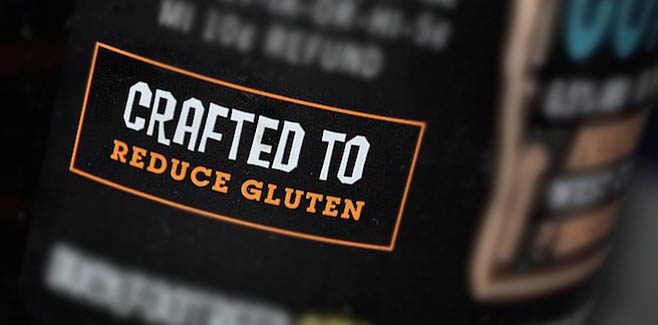

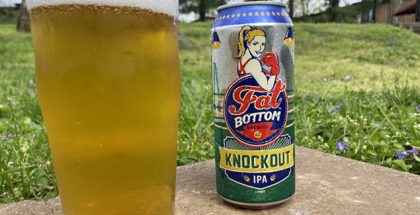


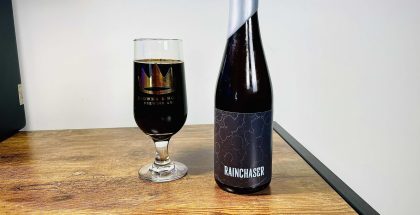
Submit a Comment